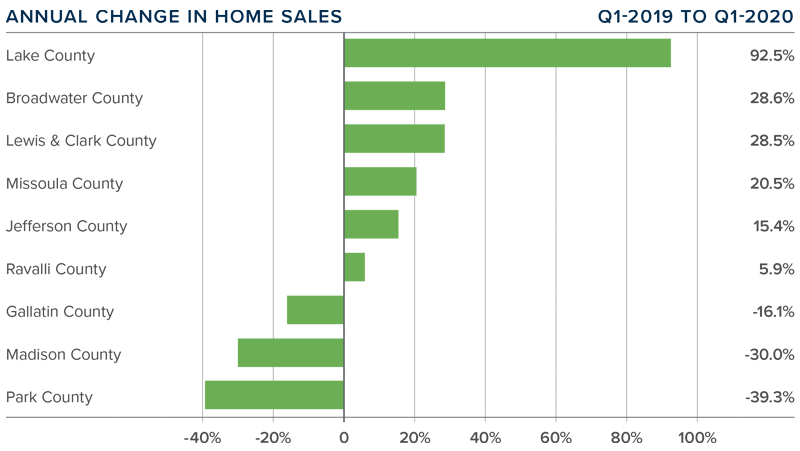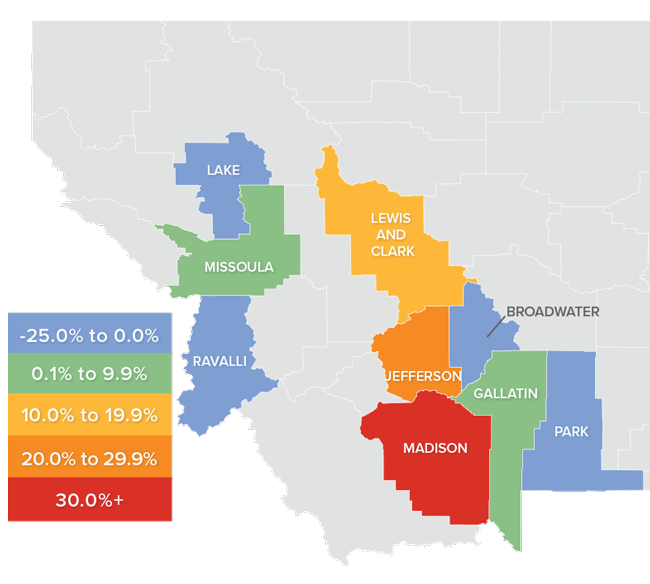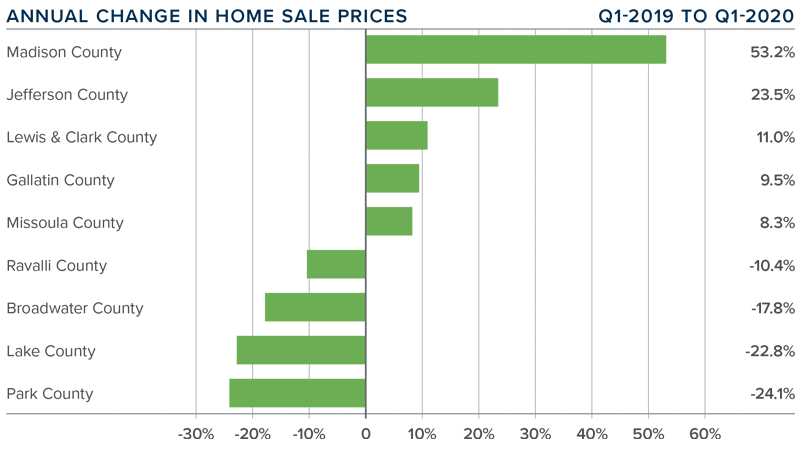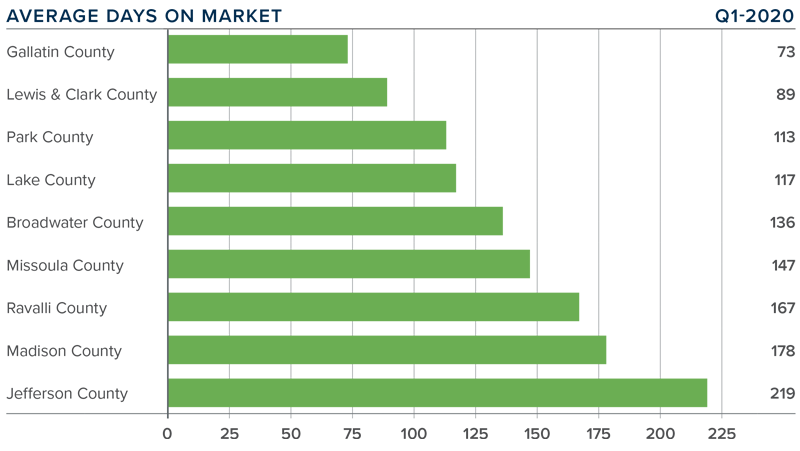The following analysis of select Montana real estate markets is provided by Windermere Real Estate Chief Economist Matthew Gardner. We hope that this information may assist you with making better-informed real estate decisions. For further information about the housing market in your area, please don’t hesitate to contact your Windermere agent.
A MESSAGE FROM MATTHEW GARDNER
Needless to say, any discussion about the U.S. economy, state economy, or housing markets in the first quarter of this year is almost meaningless given events surrounding the COVID-19 virus.
Although you will see below data regarding housing activity in the region, many markets came close to halting transactions in March and many remain in some level of paralysis. As such, drawing conclusions from the data is almost a futile effort. I would say, though, it is my belief that the national and state housing markets were in good shape before the virus hit and will be in good shape again, once we come out on the other side. In a similar fashion, I anticipate the national and regional economies will start to thaw, and that many of the jobs lost will return with relative speed. Of course, all of these statements are wholly dependent on the country seeing a peak in new infections in the relatively near future. I stand by my contention that the housing market will survive the current economic crisis and it is likely we will resume a more normalized pattern of home sales in the second half of the year.
HOME SALES
- In the first quarter of 2020, 573 homes sold, an increase of 6.2% over the same period in 2019.
- Total sales activity was a mixed bag, with increases in six counties and declines in three. The largest annual increase was in very small Lake County where sales were up by more than 92%. The largest drop in sales was in the also small Park County.
- The number of homes for sale remains well below levels I would like to see, with an average of 1,172 listings in the first quarter within the counties contained in this report.
- Low inventory levels continue to hold back home sales. The COVID-19 situation will likely cause sales to contract in the near-term; however, when housing activity starts to normalize again, I believe the market will still favor sellers given the low number of homes for sale.

HOME PRICES
 Year-over-year prices were essentially static (+0.4%) and averaged $371,555. That said, prices were up 7.5% compared to the final quarter of 2019.
Year-over-year prices were essentially static (+0.4%) and averaged $371,555. That said, prices were up 7.5% compared to the final quarter of 2019.- Average prices dropped in four counties, but this doesn’t concern me because they are all very small markets which makes them prone to extreme price swings.
- Even though sale prices in the region did not rise appreciably, there were several counties that experienced significant price growth.
- The takeaway from this data is that the market saw price growth stall. Given the effects of COVID-19, it is difficult to predict whether or not this will continue.

DAYS ON MARKET
- The average number of days it took to sell a home rose 16 days compared to the first quarter of 2019.
- During the first quarter of 2020, it took an average of 138 days to sell a home in the region.
- Homes sold fastest in Gallatin County and slowest in Jefferson County. Two counties — Lake and Lewis & Clark — saw days on market drop compared to the same period a year ago.
- The takeaway here is that market time rose modestly, and this is very likely to continue in the second quarter until the effects of the COVID-19 pandemic are behind us.

CONCLUSIONS
 This speedometer reflects the state of the region’s real estate market using housing inventory, price gains, home sales, interest rates, and larger economic factors.
This speedometer reflects the state of the region’s real estate market using housing inventory, price gains, home sales, interest rates, and larger economic factors.
Given the current economic environment, I have decided to freeze the needle in place until we see a restart in the economy. Once we have resumed “normal” economic activity, there will be a period of adjustment with regard to housing. Therefore, it is appropriate to wait until later in the year to offer my opinions about any quantitative impact the pandemic will have on the housing market.
ABOUT MATTHEW GARDNER
 As Chief Economist for Windermere Real Estate, Matthew Gardner is responsible for analyzing and interpreting economic data and its impact on the real estate market on both a local and national level. Matthew has over 30 years of professional experience both in the U.S. and U.K.
As Chief Economist for Windermere Real Estate, Matthew Gardner is responsible for analyzing and interpreting economic data and its impact on the real estate market on both a local and national level. Matthew has over 30 years of professional experience both in the U.S. and U.K.
In addition to his day-to-day responsibilities, Matthew sits on the Washington State Governors Council of Economic Advisors; chairs the Board of Trustees at the Washington Center for Real Estate Research at the University of Washington; and is an Advisory Board Member at the Runstad Center for Real Estate Studies at the University of Washington where he also lectures in real estate economics.
 Facebook
Facebook
 X
X
 Pinterest
Pinterest
 Copy Link
Copy Link



